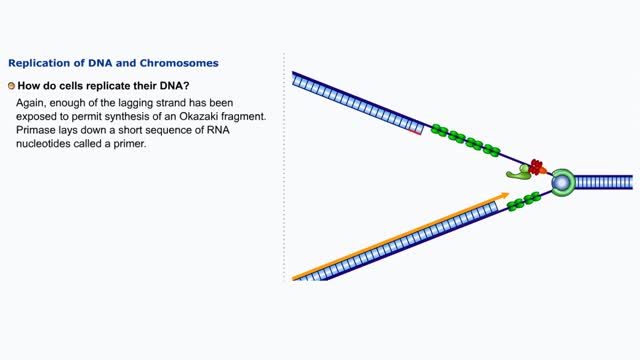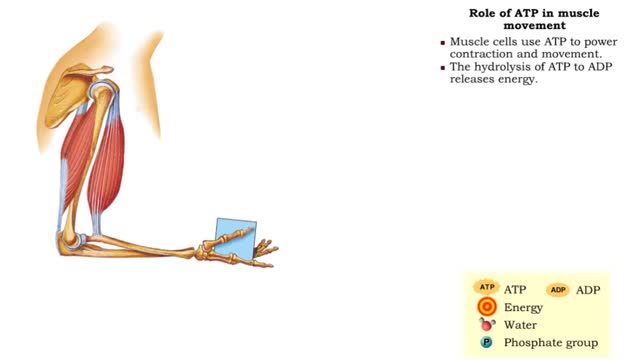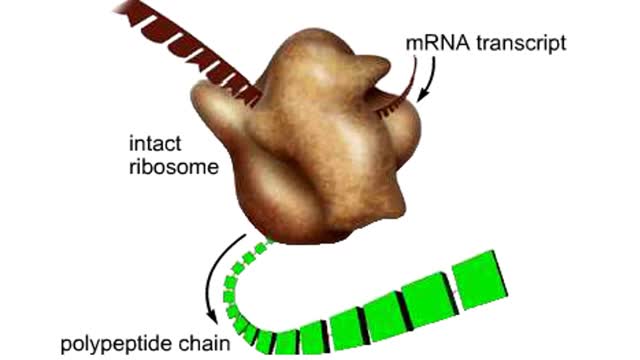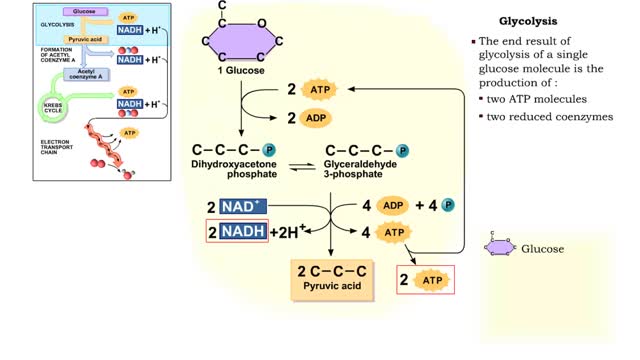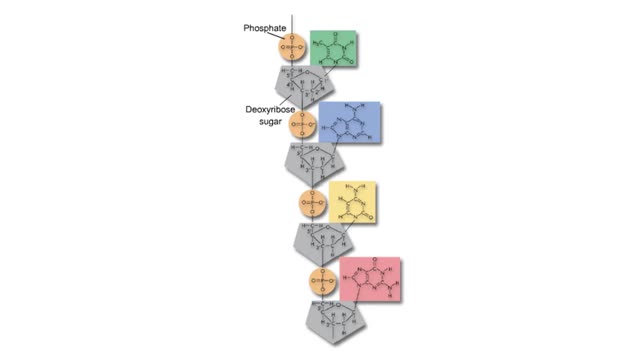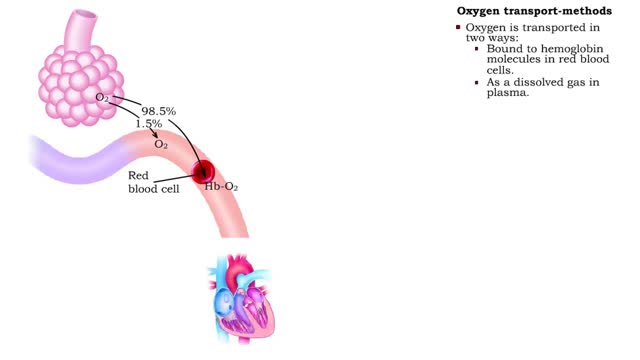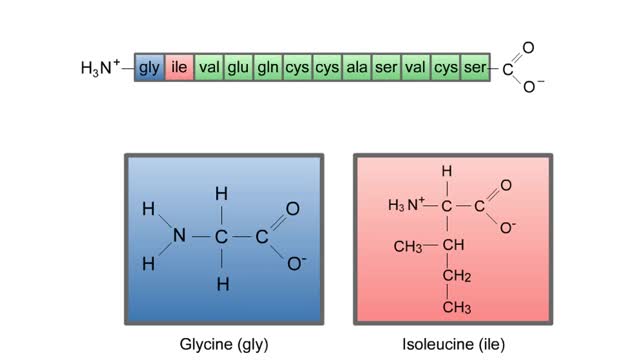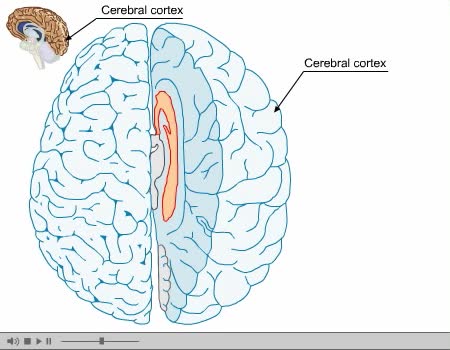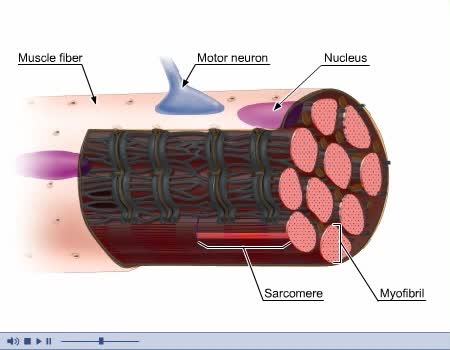Search Results
Results for: 'phosphate functional group'
Replication of DNA and Chromosomes/ How do cells replicate their DNA? (Animation) no Audio
By: HWC, Views: 10903
DNA replication in E. coil begins at a site called oriC where a replication bubble forms. At either end of this bubble is a replication fork. Since DNA polymerase Ill can read its DNA template strand only in the 3' to 5' direction this means that one strand (leading) can be read continuously b...
Role of ATP in muscle movement
By: HWC, Views: 11134
• Muscle cells use ATP to power contraction and movement. • The hydrolysis of ATP to ADP releases • ATP can be regenerated by adding to ADP. • During muscular contraction, ATP molecules: • Energize the myosin head • Detach myosin from actin • ATP must be then regenerat...
By: HWC, Views: 7908
The structure and function of the mammalian ribosome. The mammalian ribosome consists of two subunits, one small and one large. Each subunit is assembled in the nucleus from rRNA and structural proteins. Once assembled, the ribosomal subunits are shipped separately to the cytoplasm. ...
By: HWC, Views: 11364
The first reactions involve a single 6-carbon glucose sugar undergoing phosphorylation using two ATP molecules and resulting in two 3-carbon compounds. • The rest of this pathway involves an oxidation reduction reaction, forming two reduced coenzymes, and generation of four ATP molecules. ...
Oxygen transport - methods and oxyhemoglobin
By: HWC, Views: 10875
• The blood is the medium used for gas transport throughout the body. • Oxygen is only available in the lungs. Because the partial pressure of oxygen is higher in the alveoli than in the blood, oxygen diffuses into the blood and is transported to systemic cells. • At the tissues the par...
By: HWC, Views: 10030
Living things must accomplish a great number of tasks just to get through a day, and these tasks are accomplished by a diverse range of biological molecules. In the range of tasks that molecules accomplish, however, proteins reign supreme. Almost every chemical reaction that takes place in living...
By: Administrator, Views: 14384
The cerebral cortex (plural cortices), also known as the cerebral mantle, is the outer layer of neural tissue of the cerebrum of the brain, in humans and other mammals. It is separated into two cortices, by the longitudinal fissure that divides the cerebrum into the left and right cerebral hemisp...
By: Administrator, Views: 13902
Three basic types of muscles: - Skeletal - Smooth - Cardiac Composed of striated or smooth muscle tissue and classified according to their functions and appearance. Skeletal Muscle: - Also known as voluntary or striated muscle. - Controlled by the conscious part of the brain and attach...
Advertisement



